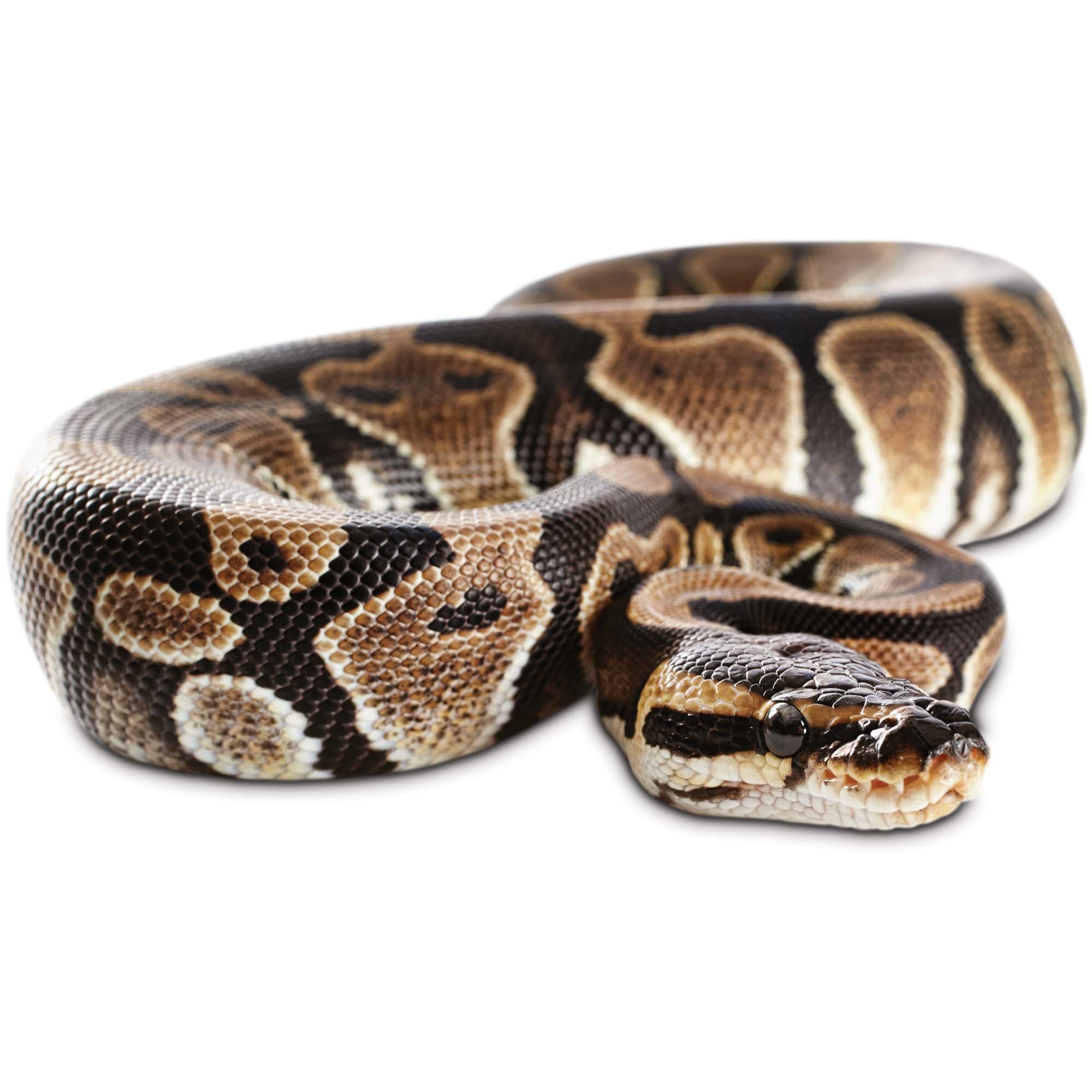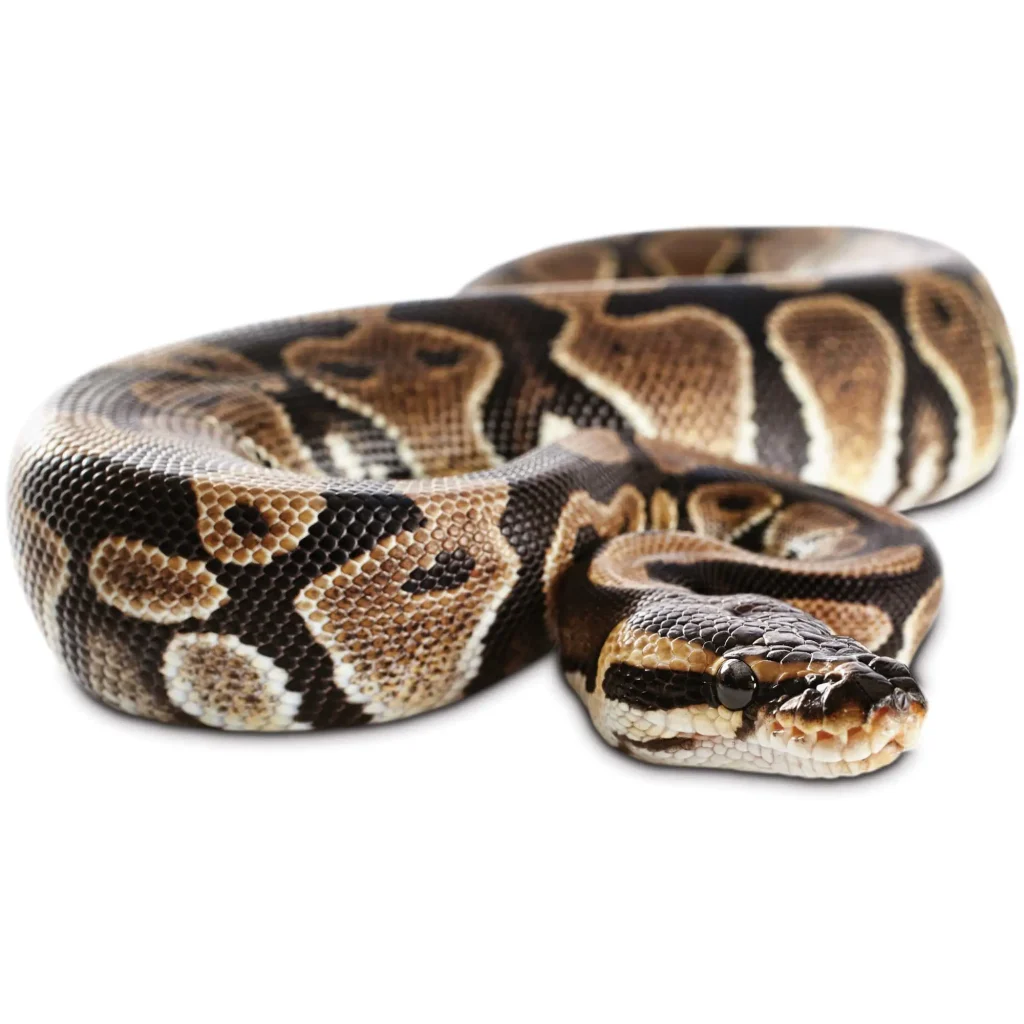Pythons are fascinating creatures that have captured the attention of many animal enthusiasts. From their impressive size to their unique patterns, pythons are a sight to behold. But with such beauty comes a price, and many people wonder just how much it costs to own a python.
While the price of pythons can vary depending on the species, age, and size, they are generally quite affordable for those interested in owning one. However, the cost of owning a python extends beyond just the initial purchase price. From housing and feeding to veterinary care, owning a python requires a financial commitment. So, if you’re considering adding a python to your family, it’s important to do your research and understand all the costs involved.
Pythons can cost anywhere from a few hundred to several thousand dollars, depending on the species and age of the snake. The most common pet pythons, such as ball pythons and corn snakes, can range from $50 to $500. Rarer species, like the green tree python, can cost upwards of $3,000. It’s important to factor in the cost of proper housing, food, and healthcare when considering purchasing a pet python.

How Much Are Pythons?
If you’re considering getting a python as a pet, you might be wondering how much they cost. Pythons are a popular choice for reptile lovers, but the price can vary depending on the species and where you purchase them. In this article, we’ll take a closer look at the cost of pythons and what factors can affect their price.
1. Ball Pythons
Ball pythons are one of the most popular species of pythons kept as pets. They are known for their docile temperament and beautiful color patterns. The cost of a ball python can range from $50 to $500 depending on the morph (color/pattern) and age. Hatchlings are usually less expensive than adults.
If you’re looking for a specific morph, you may need to pay a premium price. Some of the more sought-after morphs can cost several thousand dollars. Here are some examples of popular ball python morphs and their average prices:
– Albino: $500-$1,500
– Banana: $1,000-$5,000
– Clown: $500-$3,000
– Piebald: $1,000-$5,000
2. Burmese Pythons
Burmese pythons are one of the largest species of pythons, and they require a lot of space and care. The cost of a Burmese python can range from $100 to $1,000 depending on the age and size. Hatchlings are usually less expensive than adults.
It’s important to note that Burmese pythons are illegal to own in some states, so make sure to check your local laws before purchasing one. In states where they are legal, you may need to obtain a permit to keep one.
3. Reticulated Pythons
Reticulated pythons are another large species of pythons, and they can grow up to 20 feet long. They are not recommended for beginner reptile keepers. The cost of a reticulated python can range from $100 to $2,000 depending on the age and size. Hatchlings are usually less expensive than adults.
Again, it’s important to check your local laws before purchasing a reticulated python. In some states, you may need a permit to keep one.
4. Carpet Pythons
Carpet pythons are a smaller species of pythons, and they are known for their beautiful color patterns. The cost of a carpet python can range from $100 to $500 depending on the age and morph. Hatchlings are usually less expensive than adults.
Some popular carpet python morphs include:
– Jungle: $200-$500
– Coastal: $100-$400
– Diamond: $300-$1,000
5. Factors That Affect Price
The price of a python can be affected by several factors, including:
– Age: Younger pythons are usually less expensive than adults.
– Size: Larger pythons are generally more expensive than smaller ones.
– Morph: Certain morphs can command a premium price.
– Breeder: Reputable breeders may charge more for their pythons.
– Location: Prices can vary depending on where you purchase the python.
6. Benefits of Owning a Python
Owning a python can be a rewarding experience for reptile enthusiasts. Here are some of the benefits of owning a python:
– Low maintenance: Pythons are relatively low maintenance compared to other pets.
– Long lifespan: Pythons can live for several decades with proper care.
– Unique pet: Pythons are not your typical furry pet, which can make them a conversation starter.
– Educational: Owning a python can be a great way to learn about reptiles and their behavior.
7. Pythons vs. Other Reptiles
If you’re considering a python as a pet, you may be wondering how they compare to other reptiles. Here are some pros and cons of owning a python compared to other reptiles:
– Pros: Pythons are generally low maintenance, have a long lifespan, and can be a unique pet.
– Cons: They require a lot of space, can be expensive to care for, and may not be legal to own in some areas.
8. Where to Purchase a Python
If you’re looking to purchase a python, there are several options available:
– Reptile expos: These events are a great place to find a variety of pythons from different breeders.
– Pet stores: Some pet stores may carry pythons, but it’s important to make sure they are from reputable breeders.
– Online: There are several websites that specialize in selling reptiles, but it’s important to research the seller before making a purchase.
9. Care Requirements
Pythons have specific care requirements that need to be met to ensure their health and well-being. Here are some basic care requirements for pythons:
– Housing: Pythons need a spacious enclosure with proper lighting and heating.
– Diet: Pythons are carnivorous and require a diet of mice, rats, or other small rodents.
– Temperature and humidity: Pythons require specific temperature and humidity levels to thrive.
– Veterinary care: Pythons should receive regular check-ups from a reptile veterinarian.
10. Conclusion
In conclusion, the cost of pythons can vary depending on the species, age, and morph. They can make rewarding pets for reptile enthusiasts but require specific care requirements. Make sure to research the specific needs of the species you’re interested in before making a purchase.
Frequently Asked Questions
Pythons are one of the most popular pet snakes due to their unique appearance and docile nature. However, many people are unsure of the cost associated with owning a python. Here are some common questions and answers regarding the price of pythons.
What is the average cost of a python?
The cost of a python can vary greatly depending on the species, age, and where it is purchased from. On average, a ball python can range from $50 to $500, while a reticulated python can cost anywhere from $200 to $1,500. It is important to do research and find a reputable breeder or pet store to ensure the health and quality of the python.
Additionally, it is important to factor in the ongoing costs associated with owning a python, such as food, housing, and veterinary care. These expenses can add up quickly and should be considered before purchasing a python.
Why do some pythons cost more than others?
The cost of a python can vary greatly depending on the species and age. For example, a rare morph or coloration in a ball python can significantly increase its price. Additionally, older pythons or those with proven breeding records may also cost more. It is important to do research and understand the specific characteristics and traits of the python before making a purchase.
It is also important to note that the cost of a python can be influenced by supply and demand. If a particular species or morph becomes more popular, the cost may increase due to a higher demand and limited availability.
Are there any additional costs associated with owning a python?
Yes, there are several ongoing costs associated with owning a python. These include food, housing, and veterinary care. Pythons require a specific diet of rodents or other small animals, which can add up over time. Additionally, pythons need a suitable enclosure that provides proper temperatures, humidity, and space to move around. It is also important to factor in the cost of veterinary care, such as regular check-ups and treatment for any health issues that may arise.
It is important to budget for these ongoing expenses before purchasing a python to ensure that you can provide the proper care and environment for your pet.
Can I find cheaper pythons online?
While it may be possible to find cheaper pythons online, it is important to be cautious and do research before making a purchase. Some online retailers may not provide the same level of care and support as a reputable breeder or pet store. Additionally, shipping and handling costs can add up quickly and may not be worth the savings.
It is recommended to find a reputable breeder or pet store in your area and visit in person to ensure the health and quality of the python before making a purchase.
Is it worth the cost to own a python?
The cost of owning a python can vary depending on the species and ongoing expenses. However, many people find that the unique appearance and docile nature of pythons make them a worthwhile investment. It is important to do research and understand the specific care requirements before making a purchase to ensure that you can provide the proper environment and care for your pet.
Additionally, pythons can live for several decades, making them a long-term commitment. It is important to consider the ongoing expenses and time commitment before making a decision to own a python.
The Cost of Owning a Ball Python
In conclusion, the price of pythons can vary greatly depending on a few key factors. These include the species of python, the age and size of the snake, and where you purchase it from. Some species of python can cost thousands of dollars, while others may only be a few hundred. It’s important to do your research and find a reputable breeder or pet store to ensure that you are getting a healthy snake at a fair price.
If you are considering purchasing a python, it’s important to remember that owning a snake is a big responsibility. They require specialized care and a commitment to their well-being for their entire lifespan, which can be up to 20 years or more. Before making a purchase, make sure that you are prepared to provide your snake with the proper diet, housing, and veterinary care that they require.
In the end, the cost of a python is just one factor to consider when deciding if a snake is the right pet for you. While they can be expensive, they can also be a rewarding and fascinating addition to your household if you are willing to put in the time and effort to care for them properly.


